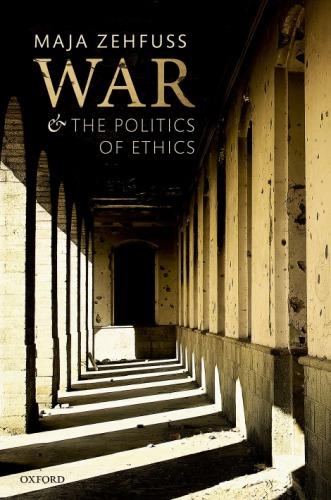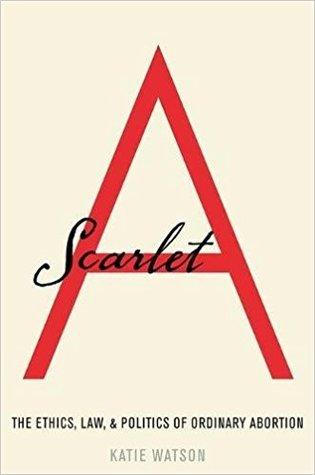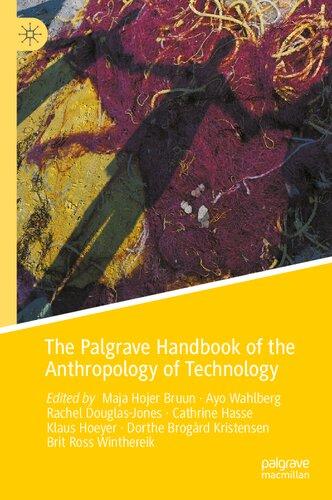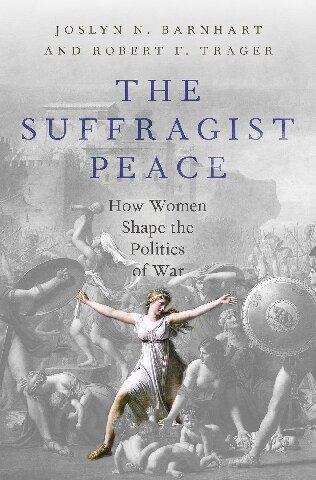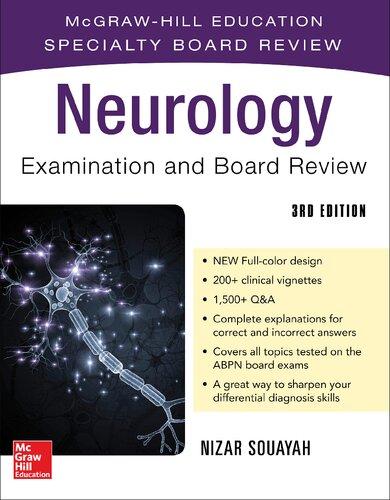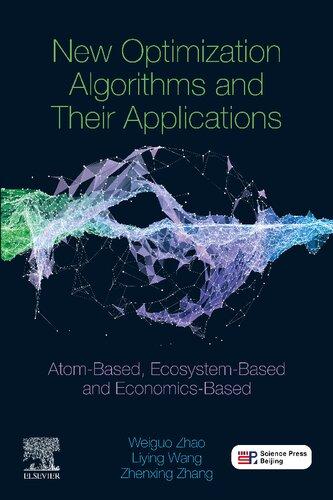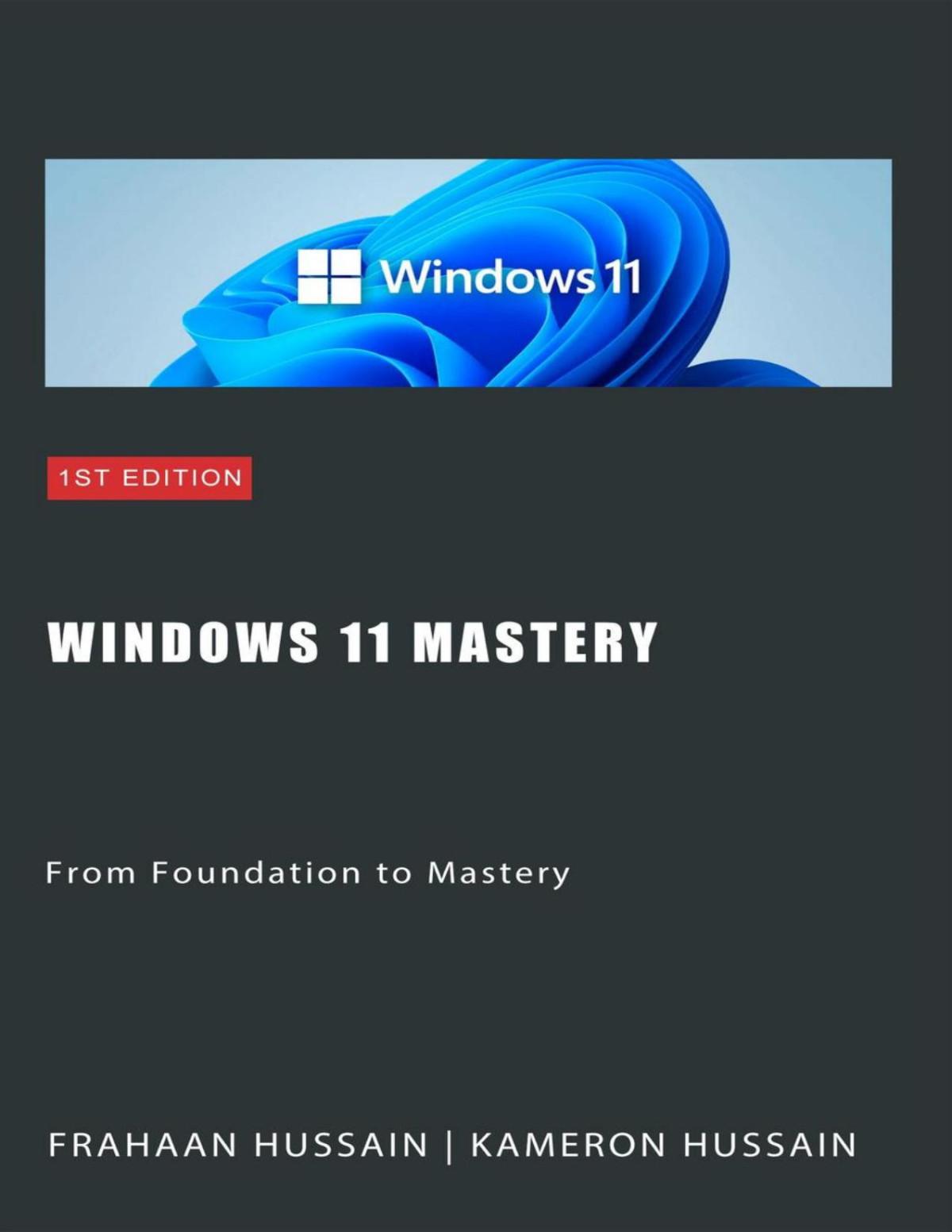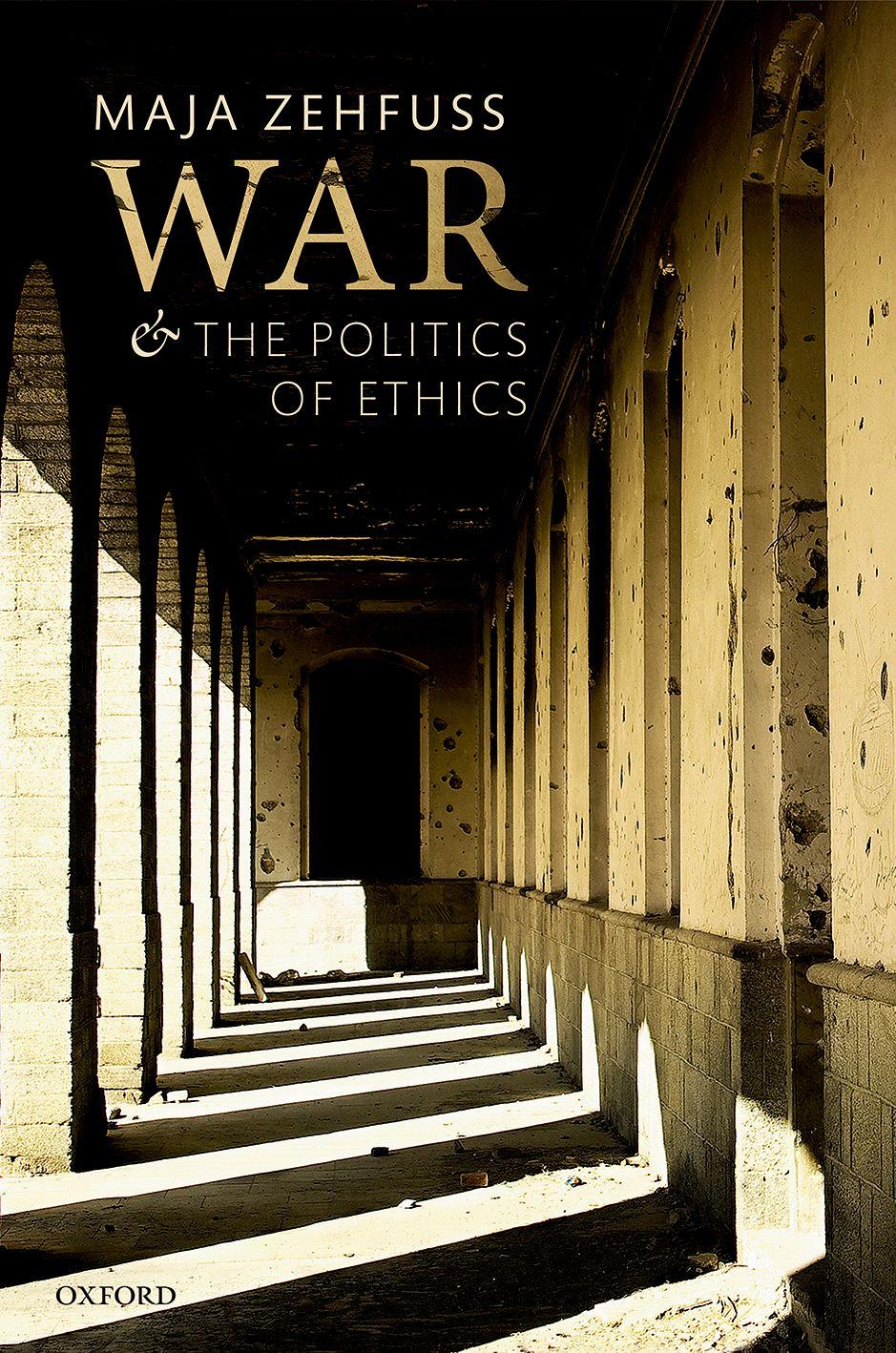PrefaceandAcknowledgements
Warisdestructiveanddeadly.Therecentstreamsofrefugees,especiallyfrom Syria,andtheriskssomeofthemtaketoleavetheregionandenterEurope, attesttothedesperatemeasurespeoplewilltakeinsearchofpeace,insearchof securityfortheirfamilies.TheFirstWorldWarisoftenthoughttohaveshown thatwarisfutile,thatitisnolongergoodforanything.Thingsdeveloped differentlyaltogether,however.TheSecondWorldWar,althoughevenmore spectacularlyhorribleanddeadly,lentitselftobeingrepresentedasa or indeed The GoodWar,thewarinwhichgoodtriumphedoverevil,freedom anddemocracyovergenocidalracismandtotalitarianism.Thisapparentsuccessinmakingtheworldabetterplacethroughwarhassinceprovidednot onlyatropethroughwhichwarcanbejustifiedbut morethanthat amoral imaginarythatpowerfullysuggeststheappropriatenessorevenneedtowage warfortheGood.
ThishasbeenvisibleincontemporaryWesternwar.FromKosovotoIraq, theWesthasseenitselfasdeliveringabetterworldtopopulationssuffering fromoppression,genocide,andotherserioushumanrightsabuses,while protectingfreedomanddemocracyathome.Yetsuchwarwreaksenormous destruction.Helpingthoseinneed,especiallyifweapparentlyhavethe capacitytodoso,appearstherightthingtodo.Wearetrappedinadilemma, however,ifwhatwedoriskskillingthoseweostensiblyseektoprotect.This bookisinspiredbytheurgentneedtothinkthroughwhytheapparent willingnesstouseforceforother-regardingpurposeshasnothelpedamelioratethissituationandhas,onthecontrary,exacerbatedit.Thecommitment toethicscounterintuitivelylegitimatesandevenenhancestheviolenceof war.ThisbookthereforeprovidesacriticalexaminationofWesternwarasa practiceofethics.Althoughweappeartobeenteringaphaseinglobalpolitics whereWesternpoliticalleadersseempreoccupiedbywhathappensinsidethe bordersoftheirownstates,theimaginaryofWesternwarasgoodandcapable ofdeliveringpositivechangetotheworldisnoteasilydisrupted;itcontinues tounderpinawholeapparatusofwarfare.Understandingthewaysinwhich thisimaginaryworksandfailstoworkisasurgentasever.
Thisbookhastakenalongtimetowrite.Ittacklesbigquestions,andlife, fortunately,hasawayofinterferingwithresearchplans.Iamenormously
gratefultoAlisonHowellandNishaShahwhoreadandcommentedon numerousdraftsandsharedtheirinsights,expertise,andideaswithexemplarygenerosity;theirenthusiasmfortheprojectwasinstrumentalinenablingmetogetitdone.AndrejaZevnikhelpedmeclarifymyargumentnot justwithcommentsonseveralchapters,butwithwide-rangingconversations aboutthelargerideasinvolvedintheproject.Mythanksarealso,again,to JennyEdkinsandSteveSmith,whosefriendship,advice,andintellectual inputhavebeenascrucialasever.
ForilluminatingcommentsonparticularaspectsoftheprojectIamgrateful toTarakBarkawi,JoannaBourke,DanBulley,MartinCoward,StuartElden, JohnEmery,DerekGregory,VivienneJabri,PeterLawler,PatriciaOwens, JamesPattison,VéroniquePin-Fat,HillelSteiner,JohnStone,andAngie Wilson.IwouldalsoliketothankmyPhDstudentsforsharingtheirideas andalertingmetonewavenuestoinvestigateandquestionstothinkthrough, especiallyJamieJohnsonandRonanO’Callaghan,whoseworkrelatesvery closelytomine.ParticularthanksareduetoClareCopleyandAggieHirst,who providedresearchassistanceandinsightinrespectofchapters3and4 respectively.
IamgratefultoMadeleineFaganandtwofurtheranonymousreviewersfor OxfordUniversityPressfortheirinsightful,generous,andchallengingcomments;theircommitmenttointellectualexchangewasimpressive.Mythanks arealsotoDominicByattforhisenthusiasmandsupport.
TheUniversityofManchesterprovidedmewithstudyleaveearlyoninthe projectwhichenabledmetoconductinitialresearch.Asignificantpartofthis bookwas,however,writtenwhileservingasAssociateDeanforPostgraduate ResearchintheFacultyofHumanities.Thiswaspossibleonlybecausethe Dean,KeithBrown,supportedmeincreatingthespacetowritewhilefulfilling aseniormanagementrole.Ofcourse,Iwasonlyabletoactuallydosoby relyingonmyexcellentcolleaguesintheFacultyPGRteam,inparticular JudithAldridge,NiquiEllis,andJoKaiserman,whoworkedveryhardto enablemeto finishthebook.Iamverygratefultoallofthem.
AnearlierversionofChapter3 waspublishedasMajaZehfuss, ‘Targeting: PrecisionandtheProductionofEthics’ , EuropeanJournalofInternational Relations 17:3(2011),pp.543–56,http://journals.sagepub.com/doi/10.1177/ 1354066110373559.Chapter4reusessomematerialfromMajaZehfuss, ‘CulturallySensitiveWar?TheHumanTerrainSystemandtheSeductionof Ethics’ , SecurityDialogue 43:2(2012),pp.175–90,http://journals.sagepub.com/ doi/10.1177/0967010612438431.Chapter1reproducesmaterialthathas previouslyservedtointroducetheissuesinMajaZehfuss, ‘Contemporary WesternWarandtheProblemofHumanity’ , EnvironmentandPlanningD:Society andSpace 30:5(2012),pp.861–76,http://journals.sagepub.com/doi/ abs/10.1068/d20710.IamgratefultoSagePublishingforbeingabletouse
thesematerialshere.AnearlierversionofpartofChapter4appearedasMaja Zehfuss, ‘StagingWarasCulturalEncounter’,in:JennyEdkinsandAdrianKear (eds.), InternationalPoliticsandPerformance:CriticalAestheticsandCreativePractice (Abingdon:Routledge2013),pp.221–33.Thismaterialisreproducedwith permissionfromTaylor&Francis.
Finally,Icouldnotwritewithoutthepeoplewhoarealwaysthere,whether tohelpmewithmybooksortohelpmeforgetthem,atleastforawhile.Iam deeplygratefultoEdith,Horst,Janik,Mika,andUlrichZehfußandSandra Reinfeld,SusiRieder,andTinaWaldvogel.
IamfortunatetobeofagenerationofGermanswhohavenotexperienced war,atleastnotintheirowncountry.Whileitwouldbedifficulttooverlook thewaysinwhichtheSecondWorldWaranditsaftermathimpactedon politicalcommunities,whatisperhapslessvisibleishowthiswaraffected ordinarypeopleandindeedcontinuestodoso,ifinlessdirectways.My previousbookstartedfromasenseofwonderathowGermanshadbeen abletopersuadethemselvesintheaftermathoftheColdWarthatwar mightactuallybeagoodthing.Clearly,thisvexesmestill.Yetperhapsitis thecontinuingbutchangingeffectofwaronpeoplethatmakesmewrite aboutit.Perhapsitiswhyeveryoneofmybookshasrelatedtowardifferently. WhenIstartedwritingaboutwar,Ididnotknowmuchaboutmyfather’s experienceasayoungchildwhenGermanywasatwarandwasthesiteof war.MyacademicinterestgeneratedconversationswithhimthatImightnot otherwisehavehad,inturnshapingmyunderstandingofwarasalived experience.Thisbookisdedicatedtohim.
ListofAbbreviations xiii
1.Introduction1 1.1TheRiseofEthicalWar3 1.2PlanoftheBook9
2.TheParadoxofEthicalWarandthePoliticsofEthics15 2.1TheParadoxofEthicalWar16
2.2NegotiatingtheParadox:JustWarThinking21
2.3TheLegitimationofWar30
2.4TheTragedyofDeathandtheAporiaofResponsibility36
2.5WarandthePoliticsofEthics46 2.6Conclusion53
3.Targeting:PrecisionBombingandtheProductionofEthics56
3.1InPraiseofPrecision57
3.2PrecisioninPractice62
3.3PrecisionandProtection66
3.4PrecisionandtheProductionofEthics73
3.5DroneWarfareandthePromiseofPrecision81 3.6Conclusion87
4.Culture:KnowledgeofthePeopleasTechnologyofEthics91
4.1TheRiseofCulture:TowardsaBattleforthePeople93
4.2CultureinPractice:The CounterinsurgencyManual 100
4.3SocialScientistsintoWar:TheHumanTerrainSystem107
4.4ThePeopleastheBattlefield112
4.5SocialScience:ObjectiveKnowledgeasTechnology ofEthics120
4.6Conclusion129
5.EthicsEducation:EthicsasEthosandtheImpossibly GoodSoldier135
5.1ForcesforGood137
5.2MakingGoodSoldiers143
ListofAbbreviations
AAAAmericanAnthropologicalAssociation
AWOLAbsentWithoutLeave
BCTBasicCombatTraining
CAOCLCenterforAdvancedOperationalCultureLearning
CAPECenterfortheArmyProfessionandEthic
CEAUSSICCommissiononAnthropology’sEngagementwiththeSecurityand IntelligenceCommunities
CENTCOM(US)CentralCommand
CEPCircularErrorProbable
CIACentralIntelligenceAgency
COINCounterinsurgency
CSF2ComprehensiveSoldierandFamilyFitness
DODUSDepartmentofDefence
FDSP(Yugoslav)FederalDirectorateforSupplyandProcurement
GPSGlobalPositioningSystem
HTAHumanTerrainAnalyst
HTSHumanTerrainSystem
HTTHumanTerrainTeam
HUMINTHumanIntelligence
ICISSInternationalCommissiononInterventionandStateSovereignty
IEDImprovisedExplosiveDevice
IRBInstitutionalReviewBoard
ISAFInternationalSecurityAssistanceForce
ISISIslamicStateofIraqandSyria
ITInformationTechnology
IVAWIraqVeteransAgainsttheWar
JDAMsJointDirectAttackMunitions
NATONorthAtlanticTreatyOrganization
NGONon-GovernmentalOrganization
ListofAbbreviations
OCSOfficerCandidatesSchool
PGMsPrecision-GuidedMunitions
PTSDPost-TraumaticStressDisorder
R2PResponsibilitytoProtect
RMARevolutioninMilitaryAffairs
ROERulesofEngagement
TBITraumaticBrainInjury
TRADOC(USArmy)TrainingandDoctrineCommand
UAVUnmannedAerialVehicle
UKUnitedKingdomofGreatBritainandNorthernIreland
UNUnitedNations
USUnitedStatesofAmerica
USAFUnitedStatesAirForce
Introduction
In2009,USPresidentBarackObamawascontroversiallyawardedtheNobel PeacePrize.TheironyoftheCommanderinChiefofacountrywagingseveral warsattheverymomentofbeingselectedfortheprizethatAlfredNobelhad intendedtogoto ‘thepersonwhoshallhavedonethemostorthebestwork forfraternitybetweennations,theabolitionorreductionofstandingarmies andfortheholdingandpromotionofpeacecongresses’1 wasnotloston Obamahimself.Inhisacceptancespeechhemadereferencetothisissue andacknowledgedthathewas ‘responsibleforthedeploymentofthousands ofyoungAmericanstobattleinadistantland’.Farfromconsideringthatthis mightmaketheawardinappropriate,heinsteadpresentedhimselfasparticularlyattunedtothe ‘costsofarmedconflict’ , ‘filledwithdifficultquestions abouttherelationshipbetweenwarandpeace,andourefforttoreplaceone withtheother’ . 2
NotwithstandingObama’sspiritedappropriationoftheparametersofthe NobelPeacePrize,thisawardtotheservingCommanderinChiefofastateat warisremarkable;itstarklyillustratesthatwarhadbeenreframedsincethe falloftheBerlinWalltwentyyearsearlier.In1990,thenPresidentofthe SovietUnionMikhailGorbachevreceivedthesameprize.Reflectingonwhat peacemeans,Gorbachevexploredvariousdefinitionsandconcludedthat today ‘peacemeanstheascentfromsimplecoexistencetocooperationand commoncreativityamongcountriesandnations.’ Hepresentedpeaceas indivisibleandideallyinvolvingthe ‘absenceofviolence’.Peace,hesaid,is ‘anethicalvalue’.His ‘policyofnewthinking’,whichhebelievedwasthebasis oftheawardmadetohim,was ‘basedontheconvictionthatattheendofthe twentiethcenturyforceandarmswillhavetogivewayasamajorinstrument
1 ExcerptfromthewillofAlfredNobel,publishedontheofficialwebsiteoftheNobelPrize, http://www.nobelprize.org/nobel_prizes/peace/(accessed15January2017). 2 BarackObama, ‘AJustandLastingPeace’,http://www.nobelprize.org/nobel_prizes/peace/ laureates/2009/obama-lecture_en.html(accessed20November2011).Quotationsusedinthis bookoftenusetheterm ‘American’ whentheymean ‘US’;thisisobviouslyproblematic.
inworldpolitics’ . 3 Gorbachev’sspeechreflectsthemoodofthattime:the aspirationandindeedconcretehopethatnewformsofpoliticswouldreplace militaryforce.FrancisFukuyamafamouslydeclaredthe ‘endofhistory’4 and thenUSPresidentGeorgeH.W.Bushspokeoftheopportunityforanewworld order: ‘anewera freerfromthethreatofterror,strongerinthepursuitof justice,andmoresecureinthequestforpeace.’5
Today,thishopefulmoodacrosstheNorthandespeciallyacrosswhatis oftencalledtheWestseemsdifficulttoevenrecall.Fearofviolentdisruptions tolifenowseemswidespreadinWesternsocieties,oratleastpoliticiansand themediaclaimitis.Indeed,insteadofmovingtowardsformsofpoliticsthat wouldmakearmsredundant,wenowseemtobeembroiledinwhathasbeen called ‘unendingwar’ . 6 Althoughwemaythinkofterrorismhavingprecipitatedthisshift,Westerncountriesinvolvedtheirmilitariesinnumerous operationsimmediatelyfollowingtheColdWar.7 Theseinterventionswere justifiedonthebasisofclaimsaboutpeaceandstabilitybutalso,crucially, claimsabouttherightthingtodoinourrelationswithothers.Theimportance ofprotectinghumanrightsandfreedomand,viceversa,ofendingoppression andethniccleansingwereprominent.Suchclaimshighlighttheenvisaged benefitstopeoplelivingwherethewarstakeplace:Westernwarispresented asmakingtheworldabetterplaceforothers,aswhatIwillcall ‘ethicalwar’ . Thisproducesanobviousdilemma,evenaparadox.Suchinterventionsaimto protectthelives physicallyandpolitically ofthosewhoareatthesame timebeingputatriskofdeath,injury,anddeprivationthroughtheuseof militaryforce.
Thereisthereforeanacutetensionbetweenclaimsmadeonbehalfof Westernoperationsandtheireffects.Therisktothosewhoareostensiblyto beliberatedisnothypothetical:Westernwarhasbeenkillingmanythousands.8 Oneobviouscritiqueofpost-ColdWarWesternwarthereforeappears tobetohighlightthegapbetweentherhetoricandwhatiscalledreality, betweentheother-regardingjustificationsandthedestructiveeffects.Sucha critiqueisimportantbutdoesnotchallengethelogicofethicalwaritself. Thatis,itallowsustothinkthatifonlythedestructioncouldbereduced orideallyeliminated,warwouldbejust fine.Thisbookthereforeengageswith
3 MikhailGorbachev,NobelLecture,http://www.nobelprize.org/nobel_prizes/peace/laureates/ 1990/gorbachev-lecture.html(accessed21November2011).
4 FrancisFukuyama, TheEndofHistoryandtheLastMan (NewYork:AvonBooks1992).
5 GeorgeH.W.Bush,AddressBeforeaJointSessionoftheCongressonthePersianGulfCrisis andtheFederalBudgetDeficit,11September1990.
6 MarkDuf field, Development,SecurityandUnendingWar:GoverningtheWorldofPeoples (Cambridge:Polity2007).
7 Therewere,ofcourse,alsosuchmilitaryoperationsduringtheColdWar.Theseare,however, notthesubjectofthisbook.
8 Seesection2.1.Thatotherwarsmayhavebeenkillingevenmorepeopledoesnotmakethis lesstrueorindeedinsigni ficant.
theproblemofethicalwarinadifferentway.HowtheWestenactsitswars dependsonwhatisavailableconceptually.Putdifferently,wardoesnotexist independentlyofthewaywethinkaboutit.Ethicshasbeencentraltotheway Westernwarhasbeenenvisagedandpractised.Warismadethroughethics. Therefore,thisbookinterrogatesthelogicofethicalwar,seekingtounderstandhowthecommitmenttoethicsshapespracticeandindeedhowpracticescome,inturn,toshapewhatisconsideredethicalinwar.Thebooktraces howtheWestenvisagesethicalwarandhowitseekstoensurethatits practicesofwarfaresupportthearticulatedethicalaims.Whatcomestobe visiblethroughthisapproachisthattheproblemisnotoneofinsufficient implementationofethicallymotivatedconstraints;ratherthepracticesof ethicalwarbothproduceandunderminetheassertedaims.Whileonemight expectthatethicalconsiderationswouldactasaconstraint,whatemergesfrom myanalysisisthatinstead,thecommitmenttoethicsenableswarandindeed enhancesitsviolence.
1.1TheRiseofEthicalWar
Sincethebeginningofthetwenty-firstcentury,weseemtohavefoundourselvesinapparentlyunendingandsupposedlyinevitablewar.9 Whileitisnow difficulteventorememberthehopefulmoodthatexistedacrossEuropeand NorthAmericajusttwodecadesearlier,peacehadbeenmeanttobreakoutafter theendoftheColdWar.Howcouldtheenvironmentchangesoprofoundly thatretrospectivelyitappearsasthoughwecouldonlyeverenduphere?For someitisstraightforward:everythingchangedon11September2001.Thisday markedtheshiftfromtheendofhistorytotheageof(thewaron)terror.
TheideaofSeptember11asaturningpointreliesontheassumptionthat, followingtheendoftheColdWar,theformersuperpowersandtheirallies thepartoftheglobeoftenreferredtoastheWest wereontheroadnot merelytoanabsenceofviolentconflictbuttopractisinggenuinepeace.On thisbasis,contemporaryconflictrepresentsarupturethatappearstohave beentriggeredbytheeventsofSeptember11andmaintainedbyoftenreligiouslyexpressedfanaticism.ThismeansthatOsamabinLaden,theTaliban, ISIS,andotherscreateviolencethataffectstheWestinvariousways through directorpotentialterroristattacks,producingstreamsofrefugees,orindeed
9 ‘Unendingwar’ isDuffield’sterm.Duffield, Development,SecurityandUnendingWar.TheUS Armytalksabout ‘persistentconflict’.SeeGeorgeW.CaseyJr, ‘ComprehensiveSoldierFitness: AVisionforPsychologicalResilienceintheU.S.Army’ , AmericanPsychologist 66:1(2011),p.1and PaulT.BerghausandNathanL.Cartagena, ‘DevelopingGoodSoldiers:TheProblemof FragmentationWithintheArmy’ , JournalofMilitaryEthics 12:4(2013),p.291.
rattlingourconscienceaswewitnesstheviolencewhichordinarypeople withintheirreacharebeingsubjectedto.Inotherwords,wararrivesfrom whatisimaginedastheoutside.WhileSeptember11ispresentedasasharp rupture asviolencearrivingintheheartlandoftheUnitedStatesoutof theblue theWestconstruedviolentconflictsastakingplaceelsewhere butcallingonitscapabilitiesandresponsibilitieslongbeforethissupposed turningpoint.
Violencedidnotsomehowarriveonthesunnymorningof11September 2001.TheUnitedStatesandthirty-threeallieswereatwarwithinmonthsof themomentouseventssignallingtheendoftheColdWar,suchasthe disbandingoftheWarsawPactandtheunificationofGermany.The1991 GulfWar supportedbyrhetoricthatsuggestedSaddamHusseinwasanew AdolfHitler wasshortandledtoanoverwhelmingmilitaryvictoryfor theUnitedStatesanditsallies.Thecomparativelylowdeathtollontheside ofthecoalition 327Westernmilitarypersonnelwerekilled10 combined withthespectacularimagesshownonWesterntelevisioncelebratinghightechnologywarfare,supportedapopularperceptionthatthankstoitssuperior weaponrytheWestwasabletoleadwarswithlittledamageeithertoitselforto others.Thisbeliefintheefficacyoftheso-calledRevolutioninMilitaryAffairs (RMA)hasalwaysbeenhotlycontested,buttherecanbelittledoubtthatthe displayof ‘smartweapons’ intheGulfWaraffectedtheperceptionofwar. ‘Bloodless’ warappearedtohavebecome(more)possible,andthisinturn meantthatusingforceseemedlesscostly.Itnowappearedpossibletoprotect liveswhileatwar,certainlythoseofWesterncombatantsbutalsoincreasingly thoseofciviliansinthewarzone.ThisprofoundchangeintheWest’srelation toitsownwarswasvividlycapturedintheideathat,fortheWest,warhad becomeakintoaspectatorsport.11
Atthesametime,whatAnneOrfordcallsa ‘newinterventionism,orwillingnesstouseforceinthenameofhumanitarianvalues’ shapedinternational politics.12 Becausedeathanddamagecouldapparentlybelimited,resortingto wartoresolveconflictsandtohelpothershadbecomeaseriousoption.The 1992USinterventioninSomaliademonstratedthispotential.AsNicholas J.Wheelerputsit,it ‘seemedthataneramightbedawninginwhichWestern governments[ ]wouldusetheirarmiestosavestrangersinplacesfaraway fromhome’ . 13 ThisimpressionwasunderlinedwhentheUNSecurityCouncil
10 MartinShaw, TheNewWesternWayofWar:Risk-TransferWaranditsCrisisinIraq (Cambridge: PolityPress2005),p.10.
11 ColinMcInnes, Spectator-SportWar:TheWestandContemporaryConflict (Boulder,CO:Lynne RiennerPublishers2002).
12 AnneOrford, ReadingHumanitarianIntervention:HumanRightsandtheUseofForcein InternationalLaw (Cambridge:CambridgeUniversityPress2003),p.2.
13 NicholasJ.Wheeler, SavingStrangers:HumanitarianInterventioninInternationalSociety (Oxford: OxfordUniversityPress2000),p.172.
forthe firsttimeauthorizedaninterventionwithouttheconsentofthe governmentofthetargetstateforopenlyhumanitarianreasons.14 Wheeler alsonotesas ‘ground-breaking’ thatseveralmembersexpressedtheviewthat theSecurityCouncilhad ‘amoralresponsibilitytosavethevictimsoffamine andcivilstrife’ 15 WhiletheSomaliainterventionisnowperhapsmost rememberedfortheUnitedStates’ ingloriouswithdrawalfollowingthe ‘BlackHawkDown’ incident,thetrendtowardshumanitarianintervention continued.Savingstrangersandthusprotectingtheirlivesappearedtohave becomearealpossibility.
Debateaboutthepossibilityandmeritsofhumanitarianinterventionwasa significantfeatureofpublicandacademicdiscourseinthe1990s,especially aroundtheissueofwhatcametobecalled ‘ethniccleansing’ intheformer Yugoslavia.OperationAlliedForce,NATO’s1999interventioninrespectof Kosovo,cametobeseenasaturningpoint.ThenUKPrimeMinisterTony Blair,avocalsupporterofthisintervention,assertedthat
BismarckfamouslysaidtheBalkanswerenotworththebonesofonePomeranian Grenadier.Anyonewhohasseenthetearstainedfacesofthehundredsofthousandsofrefugeesstreamingacrosstheborder,heardtheirheart-rendingtalesof crueltyorcontemplatedtheunknownfatesofthoseleftbehind,knowsthat Bismarckwaswrong.16
ElsewhereinthisspeechBlairhighlightednationalinterestsasimportant,but hisargumentthattheKosovointerventionwas ‘justified’ wasbasedonthe assertedcompassionforthefateofKosovarAlbanians.
Thisoperationremainssignificantbecauseitwasseentobreaknewground inthat ‘agroupofstatesexplicitlyjustifiedtheiruseofforceagainstanother stateonhumanitariangroundsinacontextwheretherewasnoexplicit SecurityCouncilauthorization’ 17 Itwasalsoregardedastheculminationof awidertrendtowardshumanitarianwar.Westerncountriesandtheiralliancesincreasinglyclaimedto fightforhumanitarianreasons,indefenceof humanrights.18 TheKosovooperationitselfwasjustifiedaslegitimate(dueto
14 Wheeler, SavingStrangers,p.172. 15 Wheeler, SavingStrangers,p.185.
16 TonyBlair,SpeechattheChicagoEconomicClub,22April1999.
17 Wheeler, SavingStrangers,p.242;seealsoCostasDouzinas, ‘Humanity,MilitaryHumanism andtheNewMoralOrder’ , EconomyandSociety 32:2(2003),p.171.
18 Onthis,see,forexample,Orford, ReadingHumanitarianIntervention;ChristopherCoker, Humane Warfare (London:Routledge2001);AdamRoberts, ‘HumanitarianWar:MilitaryInterventionand HumanRights’ , InternationalAffairs 69:3(1993),pp.429–49;DaniloZolo, InvokingHumanity:War, LawandGlobalOrder,trans.FedericoandGordonPoole(London:Continuum2002);VivienneJabri, WarandtheTransformationofGlobalPolitics (Basingstoke:Palgrave2007);CostasDouzinas, Human RightsandEmpire:ThePoliticalPhilosophyofCosmopolitanism (Abingdon:Routledge-Cavendish2007); andMajaZehfuss, ‘ContemporaryWesternWarandtheProblemofHumanity’ , Environmentand PlanningD:SocietyandSpace 30:5(2012),pp.861–76.
beinghumanitarian)despitebeingillegal.19 Thatis,itwasdefendedinexplicitlyethicalterms.
Incontrasttothelineofargumentthatpaintsviolenceashaving returned to Westernpoliticson11September2001andinitsaftermath,itisclearthat Westernstatesdeployedmilitaryforcethroughoutthepost-ColdWarperiod. Indeed,thiswasseenastherightthingtodo.20 Ostensibly,justificationsfor theusesofforcebytheWestshiftedaftertheeventsofSeptember11,however. Suddenly,usingforceappearedtobeallaboutrespondingtoterror:protection, pre-emption,andpunishmentratherthansavingstrangersindistress.This shiftwassignificantingeneratingreasonsto fightandthereforedeployments. Yetinanimportantsenseitwassuperficial.Theethicalovertones particularly aroundtheprotectionofthoseunabletoprotectthemselves thathadbecome significantintheimmediatepost-ColdWarperiodlostnoneoftheirpower. Indeed,theso-calledwaronterrorisitself,asChristopherCokerputsit, ‘an inherentlyethicalstruggle’ . 21
Themilitaryoperationthatwas,primafacie,aresponsetotheeventsof September11andthe firststepinthe fightagainstterror OperationEnduringFreedom wasinitiallynamedOperationInfiniteJustice.Whilethisname waswithdrawnduetoprotestsfromMuslimgroups,ithighlightstherolethat ethicalclaimsplayinargumentsforcontemporarymilitaryoperations.What wasmeantwasarguablyjusticeandfreedomforthosekilledonSeptember11 andtheUSpopulationmorebroadly,butthesetropesprovidedthescopefor incorporatingclaimsaboutthebenefitsoftheseoperationstothosewhose countrieswerebeingattacked.OperationsinAfghanistan,forexample,were promotedonthebasisthatwomenhadtobeliberatedfromtheoppressive Talibanregime.22 Similarly,theinvasionofIraqwasjustifiednotmerelyby theneedto findanddisableweaponsofmassdestructionbutbytheideathat IraqisneededtobefreedfromSaddamHussein’sbrutaldictatorship.SupportingtheUnitedStatesinthiscontextwas,inBlair’sview, ‘rightmorallyand strategically’ . 23 TheconclusionofColonelTimCollins’ impromptuaddressto troopsofthe1stBattalionoftheBritishArmy’sRoyalIrishRegimentasthey werereadyingtoinvadeIraqsuccinctlycapturedtheideathattheWestcan makeapositivedifferencethroughwarwithouttoomuchofacost: ‘let’sbring everyonehomeandleaveIraqabetterplaceforushavingbeenthere.’24
19 SeeDouzinas, HumanRightsandEmpire;Wheeler, SavingStrangers.
20 Formoreonthisandadiscussionoftheproblemswiththehumanitarianjustification,see Zehfuss, ‘ContemporaryWesternWar’ .
21 ChristopherCoker, EthicsandWarinthe21stCentury (Abingdon:Routledge2008),p.4.
22 SeeKeallyMcBrideandAnnickT.R.Wibben, ‘TheGenderingofCounterinsurgency inAfghanistan’ , Humanity (summer2012),pp.199–215.
23 TonyBlair, AJourney (London:ArrowBooks2011),p.424.
24 TimCollins, ‘ColonelTimCollins’ Speech’,https://journal.dajobe.org/journal/2003/03/ collins/(accessed28May2015).
Insum,therewasnomomentousshiftintheconceptualizationanduseof militaryforceinresponsetotheeventsofSeptember11.Thesensethat defencelessothersneededprotectingsurvivedintothetwenty-firstcentury; itcametobeexpressednotleastintheideaofa ‘ResponsibilitytoProtect’ (R2P).The1994Rwandangenocideandthe1995Srebrenicamassacrehadnot beenaverteddespitetheinterventionisthumanitarianspiritprevailinginthe 1990s.Thenormofstatesovereigntywasseentobeintensionwithattempts toprotectpopulationswithinotherstates.In2000,UNSecretaryGeneralKofi Annanpublishedareportentitled WethePeoples inwhichheasked: ‘if humanitarianinterventionis,indeed,anunacceptableassaultonsovereignty, howshouldwerespondtoaRwanda,toaSrebrenica togrossandsystematic violationsofhumanrightsthatoffendeverypreceptofourcommonhumanity?’25 LaterthatsameyeartheCanadiangovernmentestablishedtheInternationalCommissiononInterventionandStateSovereignty(ICISS)to respondtothisquestion.ItwastheICISS’sreportthatframedtheissueas oneof ‘responsibilitytoprotect’ , 26 atermwhichhassincegeneratedagreat dealofdebateandgainedenormouscurrency.R2P,asitcametobeknown, wasadoptedwellafter11September2001,atthe2005WorldSummitofthe then191UNmemberstates.27 Itnowappliestocasesofgenocide,ethnic cleansing,warcrimes,andcrimesagainsthumanity,28 althoughtheICISS reporthadidentifiedabroaderrangeof ‘conscience-shocking’ situations, includingmassstarvationandsignificantenvironmentalcatastrophes.29 R2P envisagespreventionandpost-conflictsupport,makingitmuchwiderthan militaryintervention.Nevertheless,thepossibilityofusingforceisasignificantpartoftheconcept.
Twopointsareworthdrawingout.First,therehavebeennumerousmilitary operationsinvolvingWesterncountriessincetheendoftheColdWar.Contrarytothehopewhenthepoliticallandscapeshiftedinthelate1980s,peace didnotbreakout.Thiswasnotbecausesomehowconflictappearedonthe West’sdoorstep,althoughthegeographicalproximityoftheBalkanWars heightenedthesensethatsomethinghadtobedone.Rather,theWestpursued aproactiveinterventionstrategy,formulatingandenactingtheviewthatithad theabilityandresponsibilitytohelpmaketheworldabetterplacefor others.Thisdevelopmentwasneitherstartedbynorlimitedtotheconflictsin
25 UnitedNationsGeneralAssembly, WeThePeoples,ReportoftheSecretaryGeneral,54th session,27March2000,A/54/2000*,C217.
26 InternationalCommissiononInterventionandStateSovereignty(ICISS), TheResponsibilityto Protect (Ottawa:InternationalDevelopmentResearchCentre2001).
27 UnitedNationsGeneralAssembly, 2005WorldSummitOutcome,60thsession,15September 2005,A/60/L.1,pp.138–40.
28 UnitedNationsGeneralAssembly, ImplementingtheResponsibilitytoProtect,Reportbythe SecretaryGeneral,63rdsession,12January2009,A/63/677,10b.
29 ICISS, ResponsibilitytoProtect,4.20.
theformerYugoslavia.Thisinterventionistdispositionhasbeenreflectednot leastinhowWesternmilitariesrepresentthemselves.TheUKDefenceVision hasbeentobea ‘forceforgoodintheworld’ , 30 forexample,whileuntil2015 theUSNavyusedthestrapline ‘AGlobalForceforGood’ . 31 Westerncountries increasinglyengagedinwaronaregularbasisbecausedoingsowasseenasan appropriatesolutiontoperceivedethicalproblems.This ‘GoodWarrevival’32 significantlyinvokesamoralorder.Westernwarispresentedandjustifiedas bringingbenefitstothoseonthereceivingend.Whilethe ‘innercompulsion’ ofthe ‘liberalconscience’ anditsroleinjustifyingwararenotexactlynew,33 itspost-ColdWararticulationmergedcommitmentandcapacityinaparticularway.Theemergingabilitytowield ‘discriminate’ forcefromadistance firstvisibletothepublicinthe1991GulfWar wascrucialinproducingethical warasthesolutiontothepredicamentofserioushumanrightsabuses.The pointisnotthattheWest’swarsarehumanitarianinthesenseoffulfillingaset ofcriteriaforother-regardinginterventions;rather,theboundarybetween apparentlyaltruisticandapparentlyself-interestedoperationsisnolonger recognizedintheproductionofWesternwarasgood.34
Second,thisproductionofwarasaninstrumentofethicshasaffected itspractice.Thecommitmenttochangingtheworldmergesvisionsofwhat should bedoneandbeliefsofwhat can bedone.Inrespectofthe ‘liberal interventions’ ofthe1990sMichaelIgnatieffpointedoutthat ‘[v]eryoften[ ... ] themoralreflex—“somethingmustbedone”—wassustainedbytheunexaminedassumptionthatwehadthepowertodoanything.’35 Thisfusionalsofound expressionintheattitudeofthe ‘UnitedStatesintheageof[GeorgeW.]Bush’ , whichaccordingtoAndrewJ.Bacevichhighlighted ‘anextremecertaintyinthe righteousnessofAmericanactionsmarriedtoanextraordinaryconfidenceinthe efficacyofAmericanarms’ . 36 ThisisasentimentsharedbyChrisHedges:
Webelievethatbecausewehavethecapacitytowagewarwehavetherighttowage war.Weembracethedangerousself-delusionthatweareonaprovidentialmissionto savetherestoftheworldfromitself,toimplantourvirtues whichweseeassuperior toallothervirtues onothers,andthatwehavearighttodothisbyforce.37
30 MinistryofDefence, DefencePlan2010–2014 (2010),p.4.
31 Formoreonthisseesection5.1.
32 HelenDexter, ‘NewWar,GoodWarandtheWaronTerror:Explaining,Excusingand CreatingWesternNeo-interventionism’ , DevelopmentandChange 38:6(2007),p.1069.
33 MichaelHoward, WarandtheLiberalConscience:TheGeorgeMacaulayTrevelyanLectures,1977 (London:TempleSmith1978),p.11.
34 Forthedetailofthisargument,seeZehfuss, ‘ContemporaryWesternWar’ .
35 MichaelIgnatieff, TheWarrior’sHonor:EthnicWarandtheModernConscience (London:Chatto &Windus1998),p.96.
36 AndrewJ.Bacevich, ‘TriggerMan:InPaulWolfowitz,MessianicVisionMeetsFaithinthe EfficacyofForce’ , TheAmericanConservative,6June2005.
37 ChrisHedges, ‘Foreword’,in:DahrJamail, TheWilltoResist:SoldiersWhoRefusetoFightinIraq andAfghanistan (Chicago,IL:HaymarketBooks2010),p.ix.
Althoughthesenseof ‘providentialmission’ isparticulartotheUnitedStates, theseobservationshighlightthewayinwhichmoralconsiderationsand assessmentsoffeasibilityaremutuallyconstitutive.
Theupshotisthat,fromtheperspectiveoftheWest,warappearsgeographicallydistantbutmorallyrequiredandthereforeunending.38 TheColdWar wasfollowednotbyincreasinglyuniversalpeacebutinsteadbya ‘partial moralrehabilitationofarmedforce(includingthewidespreadacceptanceof itsuseasaninstrumentofjusticeinanemerging “newworldorder”)’ . 39 Put differently, ‘humanitarianideals’ became ‘akeycomponentinthejustificationofcontemporaryviolence’ . 40 Whilethemorallegitimationauthorizes andthereforepotentiallyincreasesthefrequencyofwar,italsoaffectshow warmaybeconducted.Thatis,ethicalwarisnotjustasolutiontoperceived problems,thereforedeterminingwhenwemightrightlyengageinit,itisalso apracticethatisshapedbythevisionthatdrivesit.Thisiscrucial.Lord GeneralRichardDannattevenarguesthatethicalandmoralissuesarenow more importantincontemporaryconflictsthanphysicalones.41 Thisapparent enthusiasmforethicsisoftenuncriticallyandincorrectlytakentomeanthat contemporaryWesternwarisconstrainedbyethicsandthereforesomehow lessviolent,morebenign.Acriticalengagementwiththephenomenonof ethicalwarasapracticeisthereforeoverdue.
1.2PlanoftheBook
Thisbooktakesitscuefromthewayinwhichpost-ColdWarWesternwarhas beenpositionedasethicalwarandarguesthatfarfromconstrainingthe violence,thiscommitmenttoandinvocationofethicshasservedtolegitimize warandeventoenhanceitsviolence.Itwillarguethatethicscanservethis (political)purposebecauseitis(impossibly)construedasdistinctfrompolitics. ThisiswhatIcallthepoliticsofethics.Beforetheplanformakingthisargument canbesetout,itisnecessarytopauseoverhowIhaveconfiguredtheissue.
First,thisbookexaminespost-ColdWarWesternwar.Thus,Iamasserting, atleastimplicitly,thatsuchwarmightbeidentifiedasanobjectofanalysis, thatis,assomehowdistinctfromnon-Westernwar. ‘TheWest’ isofcoursea
38 Atthesametime,violenceappearstoincreasinglypenetrateWesternsocieties.Althoughone mightthereforearguethatwarisnolongerdistant,thediscourseofwarbyandlargeavoidsthis problembyconceivingthisasterrorismratherthanwar.
39 A.J.Coates, TheEthicsofWar,2ndedition(Manchester:ManchesterUniversityPress2016), p.186.
40 RonanO’Callaghan, Walzer,JustWarandIraq:EthicsasResponse (Abingdon:Routledge2016),p.3.
41 GeneralLordDannatt, TheBattleforHeartsandMinds:MoralityandWarfareToday,Annual Lecture2011(London:Theos2013),p.25.GeneralLordDannattwasChiefoftheGeneralStaffin theUnitedKingdombetween2006and2009.
problematicovergeneralization.Nevertheless, ‘Westernwar’ isused advisedly;42 thediscourseproduces ‘Westernwar’ assomethingthatcanbe identified,analysed,praised,andcriticized.43 WhiletheWestisnotcoherent, homogenous,orclearlydemarcated,theideaofwarforthegoodofothers whatIamcalling ‘ethicalwar’—isnotonlydiscursivelyattachedto ‘theWest’ butisarticulatedinsupportofwaracrossWesterncountries.44 Equally,while theremaybedebateaboutwhentheColdWarended,orindeedaboutwhether iteverdid,theeventsleadingtotheunificationofGermanyandthedissolution oftheWarsawPactprovideatemporalmarker.Thebookdoesnotclaimthat everythingchangedaround1990.Indeed,ifanything,post-ColdWarWestern warisaniterationofearlierversionsofWesternwar;theseare,however,notthe concernofthisbook.
Second,Iusethephrase ‘ethicalwar’ tosumuptheideathatwarispursued inthenameofthegood.Morespecifically, ‘ethicalwar’ involvestheclaim thatitisatleastpartlyfoughtforthebenefitofpeopleotherthanthe populationsoftheWesterncountriesatwar.AlthoughcontemporaryWestern waristypicallyrepresentedasaresponsetoanexternalproblemorthreat,itis producedasnecessaryandlegitimatethroughargumentscallingonethics.In otherwords,Westernwarisnowalwaysinsomesenseproducedasotherregarding,evenifdefenceornationalinterestsarereferenced;elsewhereIhave calledthis ‘warforhumanity’ . 45 ThetermIhavechosenhere—‘ethicalwar’— drawsattentiontothesignificanceofethics.Thisisnotunproblematic. MadeleineFaganarguesthat ‘ethical’ shouldnotbeusedas ‘alabel’,signifying ‘good’ or ‘right’;ratherethical justlikepolitical isadescriptionof ‘the contextwithinwhichwe findourselves’ . 46 Whilethisisanimportant point,inpractice ‘ethical’ isoftenusedinjustthewaythatFaganobjectsto. AsKimberleyHutchingsnotes,in ‘everydaylanguage,theword ethical is sometimesusedastheequivalentof “morallygood”,implyingthatanethical
42 Othershaveusedtheterm ‘liberalwar’,whichavoidstheproblemoftheWest.Idonotfollow thispractice.ThediscourseassociatessuchwarwiththeWest,whateverthatmaybe.Inaddition,it isnotclearthatsuchterminologicaldissociationfromtheWestisanylessproblematicthan referringtothecategory.Whatevertheconceptualissues,countriescommonlyidentifiedas Westerndominatethisformofwar.Indeed,theideaoftheWestitselfisconstitutedthrough war.PatrickPorter, MilitaryOrientalism:EasternWarthroughWesternEyes (London:Hurst& Company2009),p.4.
43 Doingsodoesnotimplythatitsharesnothingincommonwithnon-Westernwar.Foran analysisofEasternwaranditsrelationshipwiththeWest,seePorter, MilitaryOrientalism.
44 Germanyoftenfollowsdistinctpracticesinmilitarymatters,butthetropeoftaking responsibilityforothersthroughwariscrucialeventoGermandiscourse.SeeMajaZehfuss, ConstructivisminInternationalRelations:ThePoliticsofReality (Cambridge:CambridgeUniversity Press2002)andMajaZehfuss, WoundsofMemory:ThePoliticsofWarinGermany (Cambridge: CambridgeUniversityPress2007).
45 Zehfuss, ‘ContemporaryWesternWar’ .
46 MadeleineFagan, EthicsandPoliticsafterPoststructuralism:Levinas,DerridaandNancy (Edinburgh:EdinburghUniversityPress2013),p.8.
personissomeonewhodoesthemorallyrightthing’ . 47 Thisisthecaseinthe discourseexaminedhere.Inordertomakeaninterventionitisnecessaryto takethediscourseatitsword.Therefore,noattemptismadetoavoidusing ‘ethical’ inthesenseof ‘morallygood’.Itis,however,importanttobemindful ofFagan’spoint:theambiguityof ‘ethical’ asabletosignify ‘good’ aswellas ‘pertainingtoideasabouthowweoughttoacttowardsothers’ issignificant, andbothareatplayintheproductionoftheworldexaminedinthebook. IdonotsuggestthatWesternwar is goodorother-regarding,nordoIeven investigatewhetheritis;rather,Ianalysetheimpactofitsbrandingas ethical.48 Thepointistocloselyexamineandinterrogatethepracticeof whatispresentedasethicalwar.
ThereisanextensiveandimportantbodyofliteraturethatcritiquespostColdWarWesternwar,revealingitscolonialorimperialdimensionandthe necessarilyviolentcharacterofliberalism.49 Theargumentsinthisbook resonatewiththeseclaims,inparticularwiththewayinwhichthisliterature drawsattentiontothepoliticsofthecontemporarypracticeofwar.Thisbook focusesspecificallyonthe(political)roleconceptualizationsofethicsplayin enablingandenhancingsuchwar.Engagingwithethicsdirectlyisnecessary becauseethicalclaimsplayasignificantroleinenablingWesternusesof militaryforce.Inparticular,thequestionofwhatweoughttodoinresponse tohumanitariancrisespersists,andresponsesremain,aswewillsee,influencedbyoneapproach,justwarthinking,eitherexplicitlyorimplicitly. Thisisunsatisfactorynotleastbecausejustwarthinkingisunabletoelucidate howclaimstoethicsinformandproducepoliticalchallengesandindeed politicalspace.
Withthisinmind,Chapter2setsoutthecontextforthinkingthroughthe problemofethicalwar.Itoutlineshowethicalwarproducesaparadox:itrisks killingthoseitseekstoprotect.Inordertounderstandhowthedilemmahas beennegotiated bothinthesenseofthoughtthroughandrespondedtoin practice itisnecessarytoacknowledgetheimpactofjustwarthinking.The chapterthereforebrieflyintroducesitskeyclaimsandroleinthediscourse. Whilemodernjustwarthinkersdrawonthetraditioninordertotrytolimit war,thechapterproceedstoshowthatthiswasnotitsinitialpurpose.This
47 KimberleyHutchings, GlobalEthics:AnIntroduction (Cambridge:PolityPress2010),p.5.
48 ThankstoNishaShahforsuggestingthisphrase.
49 See,forexample,DavidCampbell, PoliticsWithoutPrinciple:Sovereignty,Ethics,andthe NarrativesoftheGulfWar (Boulder,CO:LynneRiennerPublishers1993);AnthonyBurke, Beyond Security,EthicsandViolence:WaragainsttheOther (London:Routledge2007);DerekGregory, The ColonialPresent:Afghanistan,Palestine,Iraq (Oxford:Blackwell2004);Jabri, Warandthe TransformationofGlobalPolitics;JudithButler, FramesofWar:WhenIsLifeGrievable? (London: Verso2009);JamesDerDerian, VirtuousWar:MappingtheMilitary-Industrial-Media-Entertainment Network (Boulder,CO:WestviewPress2001);MichaelDillonandJulianReid, TheLiberalWayof War:KillingtoMakeLifeLive (London:Routledge2009).

